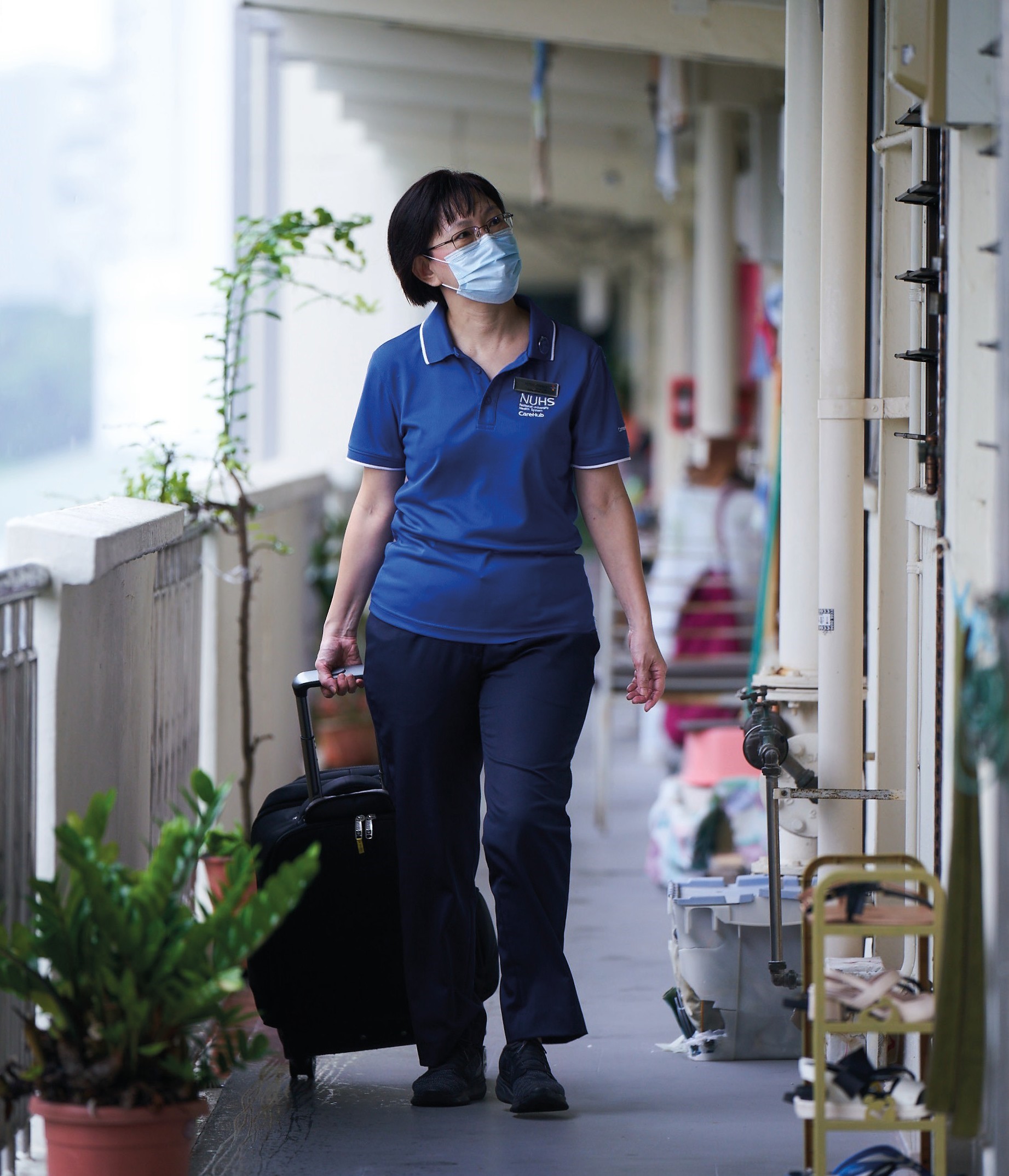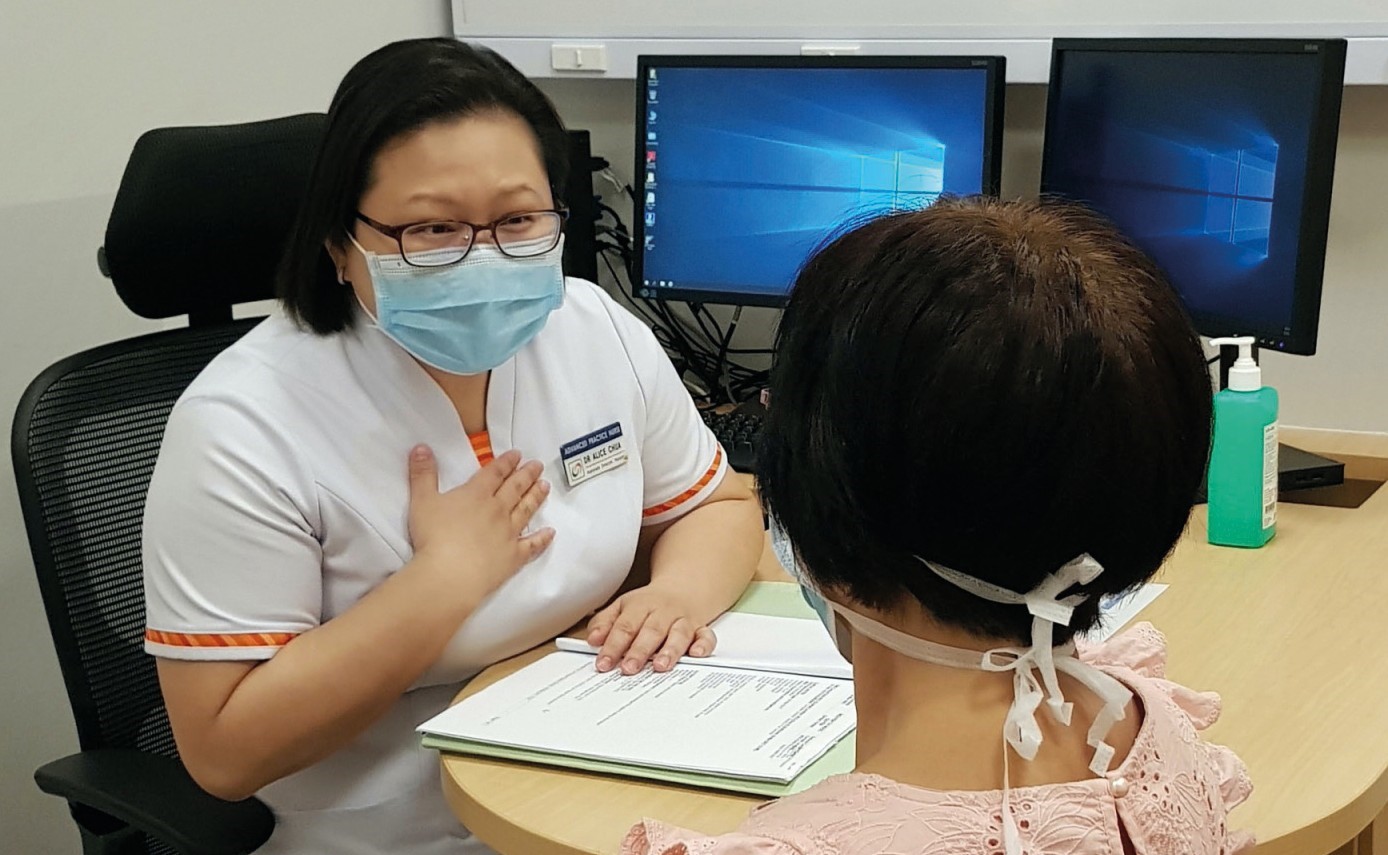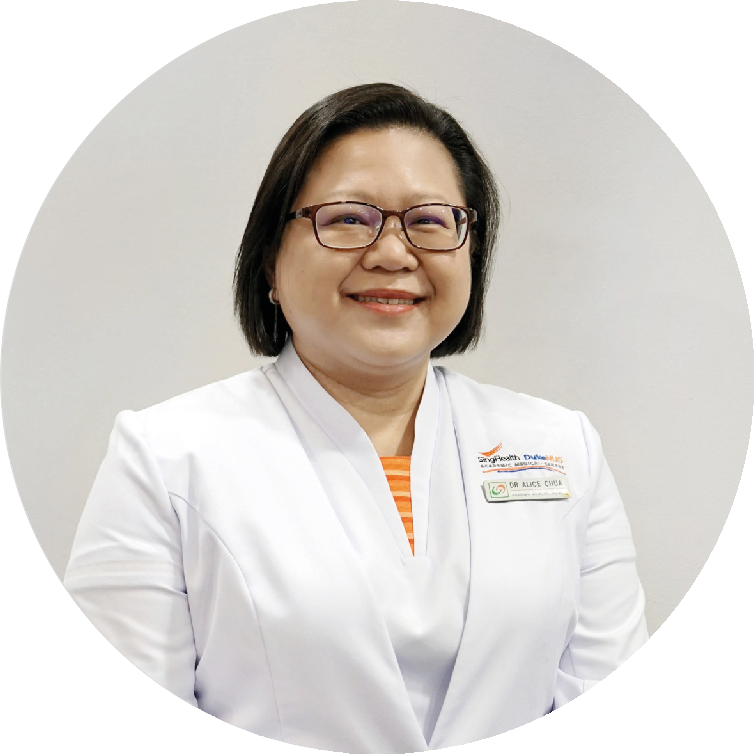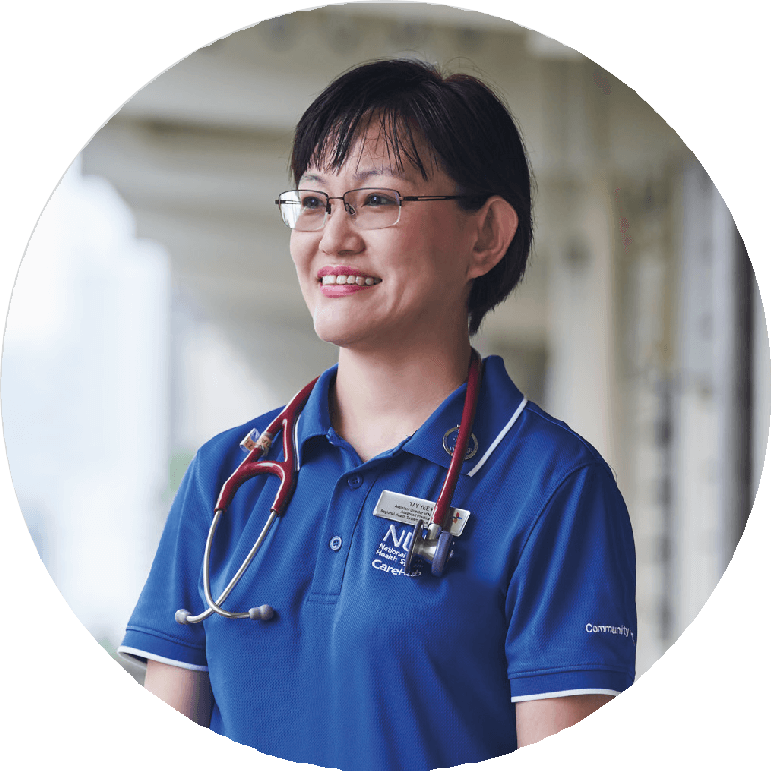If you ask Ms Tay Yee Kian how she came to be a community nurse, she would tell you it was serendipity that brought her to the field. After all, she had already spent over 25 years in gerontological and acute care at the National University Hospital by 2014, the year her career took a decidedly gentle shift towards community nursing.

“Looking back, I’m quite glad that my role evolved and aligned with the Ministry of Health’s direction to move care to the community and beyond healthcare to health,” said the Assistant Director of Nursing at the National University Health System (NUHS) Regional Health System Office.
On July 21, Ms Tay became the first practising community nurse from NUHS to be honoured with the President’s Award for Nurses, the highest accolade for the profession in Singapore, given in recognition of the significant contributions outstanding nurses have made to the profession and the community.
Ms Tay and Dr Alice Chua Foong Sin, both Advanced Practice Nurses (APNs) and alumnae of the National University of Singapore’s Alice Lee Centre for Nursing Studies (NUS Nursing), were among five who received the award this year.
Dr Chua said: “The reward in nursing is unique as it offers the opportunity to make a difference in the lives of others. I started my career in paediatric oncology and transitioned to adult oncology. My satisfaction comes from the smile and joy of my patients and this has kept me going for many years.
“As a nurse, I’m always challenged by different situations and different individuals because our patients come from all walks of life. They have shaped me both professionally and personally.”
SPEARHEADING COMMUNITY NURSING IN WESTERN SINGAPORE
Ms Tay recalled that during her years as a gerontological nurse, she saw how elderly patients tended to be unwell soon after discharge from the hospital due to inadequate care at home.
“Many of these patients needed readmission soon enough. That made me think of the need for us to move into the community to help care for these patients during the critical transition period,” she said.
Ms Tay got her chance to do exactly that in 2014 when she joined the Regional Health System Office of NUHS on a directive to set up a community nursing unit for the western region of Singapore.
She currently leads a team of over 50 nurses and care coordinators who look after patients referred to the unit by the acute hospitals within the NUHS cluster, as well as those from a predictive list of patients with a history of readmissions.
“Our services run the gamut from good health promotion practices and disease prevention campaigns to pre-frail and end-of-life care. Community nursing is evolving and APNs contribute in the timely management of patients with the ability to order tests, establish differential diagnosis and prescribe or titrate certain medications,” she said.
As a community nurse consultant, Ms Tay is also often asked to contribute to the care planning for highly complex patients. She also makes sure care standards are being established.
“The Master of Nursing programme at NUS Nursing prepared me well, especially in physical assessment and pharmacology. With Singapore’s ageing population, APNs have the ability to practise not only in clinical care, but also in educating caregivers to reduce the chances of their loved ones returning to the hospital,” said Ms Tay.
One community project that she is especially proud of is the award-winning NUHS CareHub programme, a nurse-led model of care which has reduced patients’ hospital stay by two days.
The post-discharge transitional care programme ensures that enrolled patients, often at high risk of readmission, can continue to receive the necessary coordinated, multi-disciplinary care at home.
Among the services it provides are a personalised care plan for the patient after a discussion with the patient’s family and caregivers, follow-up telephone calls to check on the patient’s condition, and clinician consultations and rehabilitation services as needed.
On her receiving the President’s Award, Ms Tay said it is proof that community nursing is growing in significance in Singapore.
“I am deeply blessed and honoured to receive this award. It is not just for myself, but also for the community team. There is an increasing need for community nurses. A lot of patients need us to be there with them in their homes to help them manage their care.”
UPPING STANDARDS OF CANCER CARE
Dr Chua, an APN specialising in head and neck cancer, is a pioneer nurse and Assistant Director of Nursing at the National Cancer Centre Singapore (NCCS).
She joined the Centre when it was established in 1999. Since then, the accomplished lifelong learner has been unrelenting in her pursuit of knowledge and skills in oncology nursing through postgraduate studies and overseas fellowships. She received her Doctor of Nursing Practice degree from Duke University School of Nursing last year, following a Master of Nursing from NUS Nursing in 2008.

“I think it’s important to stay on top of current trends and practice through continued research and education, especially with a constantly changing healthcare landscape,” she told The Straits Times in an interview.
As the APN and nursing lead at the SingHealth Duke-NUS Head and Neck Centre’s Allied Health Professional Clinic, Dr Chua manages patients with head and neck cancers throughout the trajectory of their disease. She found her niche in this sub-speciality as patients with such cancers experience significant side effects such as the inability to talk or swallow, pain and disfigurement. “Due to the nature of head and neck cancers, I noticed many clinical gaps that I could fill to facilitate a smoother treatment journey for the patients,” she said.
Dr Chua runs concurrent head and neck consultations with surgical oncologists, in which she independently manages patients, reviews new cases and discusses management plans with the doctors.
“We have developed a multi-disciplinary pre- operative clinic where we come together with different allied health professionals to assess the patient before the surgery, so that we can better understand the needs of the patient, what to anticipate and counsel the patient on, as well as facilitate a smooth post- surgery recovery process,” she said.
Dr Chua is also planning to run a survivorship clinic for patients with non-complicated head and neck cancers.
By her reckoning, 60 per cent of her time is spent in clinical work while the rest is divided between administrative functions as well as research projects and providing education and development to nurses and allied health professionals.
To date, she has conducted six research studies as the principal investigator on topics centred on the care and quality of life, assessment, treatment and management of patients with cancer.
DRIVING NURSING TO GREATER HEIGHTS
Dr Chua is also involved in numerous education committees at the hospital, cluster and national levels focusing on the professional development of nurses. The groups include the Committee for APN Competence (CAC), where she serves as chairperson and APN Centre lead mentor, and the SingHealth APN development committee as a member.
In 2018, she was appointed deputy director of the Nursing Allied Health Education Unit (Division of Cancer Education), where she facilitated the development of an Oncology Care Programme for nursing and allied health professionals.
“As an APN, I feel I am in a privileged position to guide, mentor and drive the nursing profession to greater heights by practising above our licence,” said Dr Chua.
As the first NCCS APN lead, she has mentored six NCCS APN interns into full-fledged APNs. She currently oversees 10 APNs and the Nurse Clinical Services.
Her aspiration after receiving the President’s Award remains centred on nursing education.
“I hope for the nursing profession to grow as a community,” she said. “Receiving this award is an honour for me and the team. It brings to my mind what one mentor used to say to me: ‘We have to always aspire to inspire before we expire.’ This award has really affirmed this for me.”




